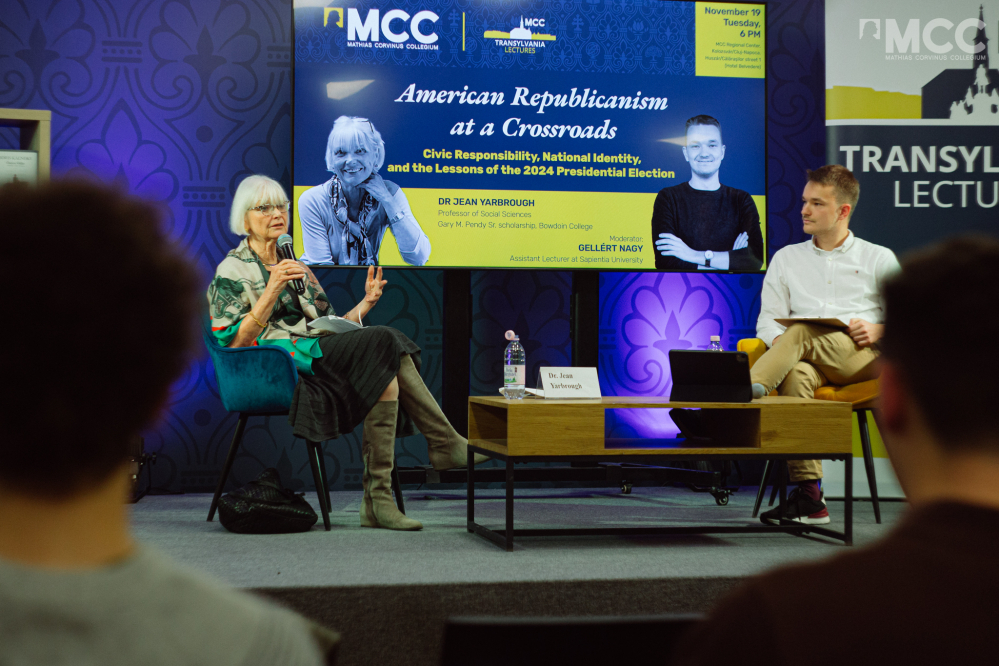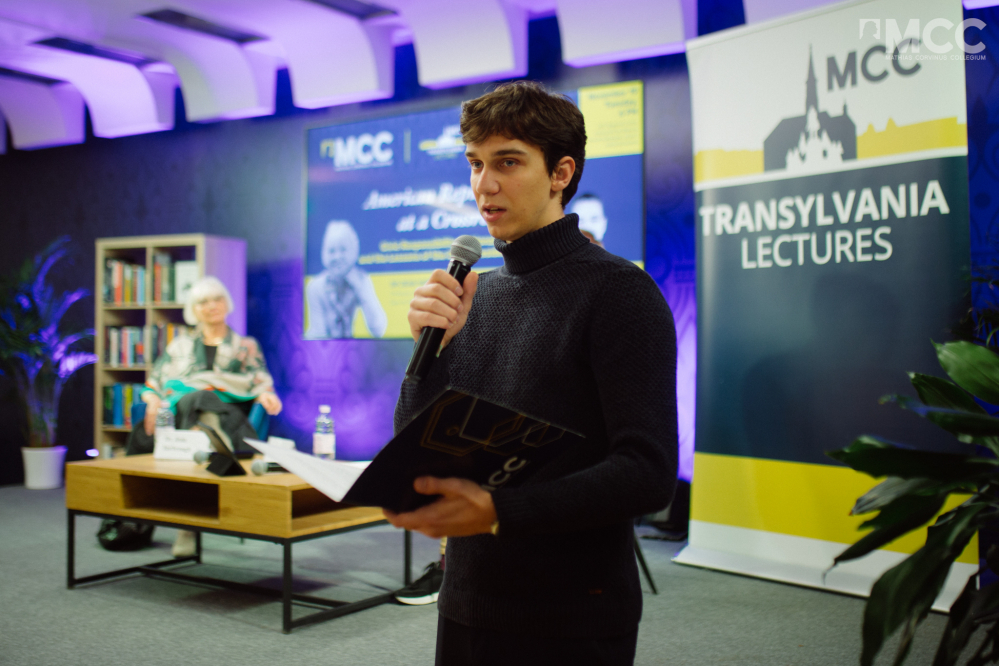Reading time: 3 minutes
In a period of intense political change and reflection, the latest Transylvania Lectures discussion titled American Republicanism at a Crossroads offered a timely exploration of America’s foundational principles, civic identity, and challenges to its democratic fabric. Centered on the 2024 presidential election and its implications, the lecture featured Dr. Jean Yarbrough, expert in American political thought, who engaged attendees in a deep dive into the enduring questions of governance and democracy in the United States.
Moderated by Gellért Nagy, assistant lecturer at Sapientia University and a researcher at the Central European Academy, the event highlighted how historical perspectives illuminate contemporary debates about national identity, civic responsibility, and federalism.
Dr. Yarbrough traced the ideological roots of American republicanism to the nation’s British heritage, emphasizing how the early settlers brought with them a love for individuality and liberty. These traditions, enshrined in the Declaration of Independence and the Constitution, form the backbone of the United States’ political philosophy. However, she noted that the constitutional framework, while revered, faces significant strain in a modern context.
Drawing on Alexis de Tocqueville’s observations of federalism, she underscored the decentralization of political power as a cornerstone of American democracy. Tocqueville admired the balance between local autonomy and national governance, a structure designed to prevent tyranny. But as Dr. Yarbrough observed, federalism has evolved into a contested arena, especially in the wake of the Civil War and the rise of administrative centralization.
The lecture shed light on the tension between federalism’s historical ideals and the realities of modern governance. With America’s expansion, the growth of centralized bureaucracies has introduced a new dynamic. Dr. Yarbrough critiqued the emergence of administrative agencies—often called “alphabet agencies”—which, she argued, wield significant influence without direct electoral accountability.
This shift, she explained, aligns with the influence of European political theories, particularly Hegelian principles of rational bureaucracy. American intellectuals who studied in Germany after the Civil War brought back ideas of administrative efficiency, challenging the decentralized ethos of the Founding Fathers.
Tocqueville’s warnings about bureaucratic despotism resonated strongly throughout the discussion. He feared that an overreliance on centralized administration would stifle individual initiative and entrepreneurship. According to Dr. Yarbrough, this “hardening of the economic arteries” is evident in America’s complex regulatory landscape. Yet, she highlighted the nation’s resilience, pointing to its traditions of social and geographic mobility, as well as its capacity for innovation.
The discussion also touched on the evolving role of media in shaping civic engagement. With the decline of traditional media, podcasts and social platforms have emerged as dominant forces in political discourse. This shift underscores a broader cultural transformation, as citizens increasingly turn to digital spaces for information and connection.
Against the backdrop of the 2024 election, the lecture emphasized the need for Americans to critically engage with their democratic heritage. As political and cultural divides deepen, understanding the principles of republicanism and federalism becomes more urgent. Dr. Yarbrough called for a reevaluation of the Constitution’s limitations and an openness to adapting its framework to modern challenges.
The Transylvania Lectures ultimately served as a platform for reflection, offering historical insights and philosophical perspectives to inform the way forward for American democracy. As the nation navigates its political crossroads, the lessons of Tocqueville, the Founding Fathers, and other key figures remain as relevant as ever.







